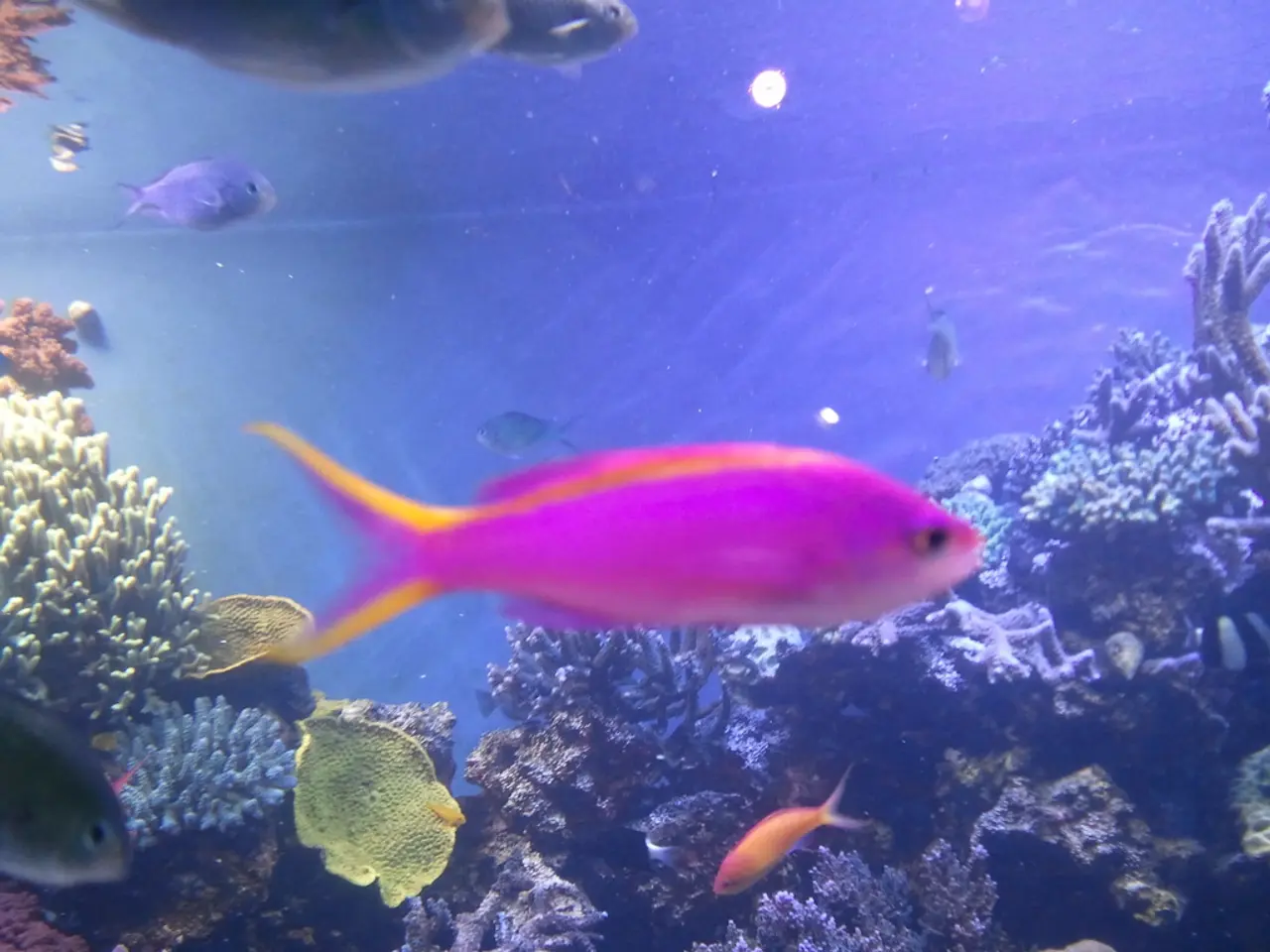Research disparities in coral reef studies weaken international scientific cooperation, according to a recent study.
The world's coral reefs, home to a vast array of biodiversity, are primarily located in tropical, lower-income countries. However, a recent study published in NPJ Ocean Sustainability has revealed that coral reef science is predominantly led by researchers from high-income nations [1].
This underrepresentation can be attributed to several barriers faced by tropical, low-income nations. These include limited access to research funding, technology, infrastructure, and global scientific networks. As a result, high-income countries, with their developed scientific infrastructure and consistent funding streams, often dominate the field, producing a disproportionate amount of scientific output and policy influence [2].
The study, authored by a diverse team of scientists, many of whom are based in tropical countries in the Global South, found that about 20% of the research teams involved in coral reef fieldwork were all based outside the host country, pointing to a prevalence of "parachute science" practices [1]. This term refers to research that leaves out local input, often resulting in contributions from middle-income countries not being adequately recognized in international collaborations [1].
To address this imbalance, initiatives like the Global Fund for Coral Reefs (GFCR) aim to unlock blended funding targeting vulnerable reef nations, facilitating sustainable fisheries, eco-tourism, reef restoration, and marine protection [2]. Enhancing local research capacity through training, infrastructure investments, and equitable partnership models can empower scientists in tropical countries to lead conservation efforts.
Key approaches to reduce underrepresentation include improving access to funding, capacity building, equitable international collaborations, and recognition and inclusion [2]. Easing the barriers for lower-income countries to obtain climate finance and research grants can help increase local research capacity. Training programs, technology transfer, and infrastructure support can further boost local scientific expertise.
Partnerships where tropical country scientists lead projects or share decision-making power and data ownership are essential for equitable international collaborations. Amplifying the voices of scientists from reef-rich, lower-income countries in global scientific forums and policymaking is crucial for recognition and inclusion.
By implementing these strategies, it is possible to shift coral reef science leadership towards greater geographic and economic equity. This would not only benefit scientific understanding but also conservation outcomes in the regions most affected by reef degradation [1][2].
References:
[1] Vásquez, R., & Sánchez-Noguera, J. (2021). Coral reef science is dominated by researchers from high-income countries. NPJ Ocean Sustainability, 4(1), 1-7.
[2] Reef2Future. (2021). The Global Fund for Coral Reefs. Retrieved from https://www.reef2future.org/gfcr/
[3] World Resources Institute. (2019). Access to Climate Finance and the Paris Agreement: A Review of Progress and Opportunities for Improvement. Retrieved from https://www.wri.org/publication/access-climate-finance-and-paris-agreement-review-progress-and-opportunities-improvement
- The underrepresentation of researchers from tropical, lower-income nations in the study of climate change and coral reefs can be addressed by granting equal funding opportunities, improving access to technology and global scientific networks.
- By promoting sustainable practices in fisheries, eco-tourism, restoration, and protection of marine life, policy-and-legislation initiatives like the Global Fund for Coral Reefs (GFCR) aim to empower local scientists and shift research leadership towards greater geographic and economic equity.
- Ensuring equitable international collaborations, recognizing contributions from middle-income countries, and incorporating local input in parachute science practices can help reduce bias in the production of scientific output and policy influence related to climate change and biodiversity conservation.
- Strengthening local research capacity in environmental science through training, infrastructure investments, and partnership models that allocate decision-making power and data ownership to scientists in reef-rich, lower-income countries is crucial for sustaining the fight against climate change and preserving biodiversity.
- In the realm of general-news, the ongoing imbalance in climate-change and environmental-science research between high-income and low-income nations underscores the need for science-based policies that acknowledge the importance of biodiversity, sustainability, and the carbon cycle in efforts to combat climate change.








